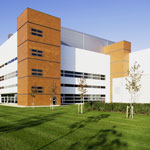It’s funny how I ended up being a real estate lawyer. I went to American University in Washington, DC, thinking I’d be a litigator. I was going to work for the US Justice Department, but they froze their new hires as a result of the economic and political climate. I came back to Michigan and starting doing real estate work for a Southfield, Michigan, law firm called Simon Deitch Tucker & Friedman. I was there for seven years before moving to Detroit to work for another firm, Honigman Miller Schwartz and Cohn. In those days, I was doing a lot of private-placement work for real estate syndications. I grew fond of real estate law.
Edward Schonberg: Career Highlights
1973: Graduates from the University of Michigan with a major in American history and a minor in English
1976: Receives his law degree from American University in Washington, DC, with the intent of becoming a litigator and working for the US Justice Department
1978: Moves to Southfield, MI, to work as a real estate lawyer for Simon Deitch Tucker & Friedman
1985: Goes to work for the Detroit law firm of Honigman Miller Schwartz and Cohn LLP
1993: Represents Soave Enterprises in its purchase of the land that eventually becomes Brambleton, a 2,000-acre planned-unit development; takes his first in-house counsel position at Soave Enterprises and begins working on the development of Brambleton and all other real estate and banking matters
2013: Continues his work on Brambleton, which currently has 3,580 lots developed and conveyed to homebuilders, 500,000 square feet of retail space, and plans for even more development
I moved in-house in 1999. At Honigman Miller Schwartz and Cohn, I was representing Anthony Soave, who was buying a large plot of vacant land approximately three miles outside of Dulles Airport in Louden County, Virginia. I represented him in the purchase of that property, which he ultimately named Brambleton. One day he said he could use an experienced real estate lawyer because the development was going to require a lot of real estate experience. He asked if I knew anyone who was looking, and I said, “How about me?”
The idea of going to work for one client appealed to me. I’d been working in private practice for 21 years and needed a change. What I like the most about this job is that I oversee a vast amount of real estate work, participating in the business aspects as well. I’m not just being a lawyer; I’m participating in all aspects of decision-making.
Brambleton is still the most compelling project I’ve ever worked on. It’s a 2,000-acre planned-unit development (PUD). We’ve conveyed approximately 3,580 lots to builders for ultimate sale to homebuilders and have approximately 500,000 square feet of retail space. It’s been a constant learning experience; I’d never before been involved in a project that started from the ground up, and participating in its maturity has been unbelievable. The initial challenging aspect was being able to sell—to a very sophisticated group of public and private builders—land that was totally vacant and in the middle of nowhere at the time. I can’t imagine a real estate lawyer having a better opportunity. I learned from everyone. I learned from, and continue to learn from, Mr. Soave and his team, including Brambleton’s COO, Bill Fox—and from our builders.
I think the path I took to get here was a good one. It’s a good idea to go work at a law firm with very experienced real estate lawyers so that you can really learn and fully understand the business before you take a position in-house where you’re overseeing multimillion-dollar real estate deals and holdings. Someone came to me recently: he was trying to decide what to do with his career, and I told him, “When you graduate from law school, you don’t understand real estate development, so learn.” No one’s a master of all, but you have to understand as many aspects of real estate law as you can to be in-house counsel at a real estate firm with substantial real estate holdings. ABQ


